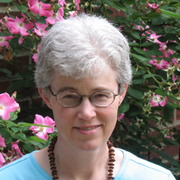As a child, when asked what I “wanted to be when I grew up,” I would usually answer, “a teacher.” I practiced by playing school with my siblings, and in real school, by developing a passion for learning every sort of subject. Spending my entire pre-college educational years in public schools in rural Pennsylvania, my exposure to religious education came through CCD (Confraternity of Christian Doctrine) weekly classes at my Catholic parish. There, I came at the very end of the Baltimore Catechism emphasis that guided most religious instruction for several generations of young US Catholics. In the late 1960s and early 1970s, as we began to absorb the impact of Vatican II, the Catechism’s question and answer structure was literally “in the back” of our CCD textbooks—still present, but no longer front and center. New catechetical content and methods were coming into play. In high school, I remember vividly a textbook that determinedly de-mythologized the Bible and, at the same time, encouraged us to seek a more intimate relationship with God. I think that my experiences with secondary CCD began to nurture, however inchoately, an attraction to joining a love for Catholic religion in the heady postconciliar years with the intellectual quest for understanding and communicating “the faith”—but in a more pastoral mode than the traditional schooling paradigm.
Attending the University of Notre Dame as a theology major, I benefited from its cooperative arrangement with St. Mary’s College, where a two-semester course in religious education was offered. This included a focus on developmental theory—we studied works by Piaget and Kohlberg—as well as a field placement in a local parish catechetical program. I was probably as well prepared as any college graduate could be to move as a neophyte into a position as a parish Director of Religious Education in a small congregation in northern Georgia. However, it quickly became clear to me that I needed graduate studies in order to grow in my role. I found my place at the then-Institute of Religious Education and Pastoral Ministry at Boston College, in the early 1980s.
The combined commitments of IREPM to pastoral ministry and religious education became a launching place for my continued efforts to bridge holistic faith formation within faith communities with more self-consciously educational pursuits. Studying with Mary Boys and Thomas Groome immeasurably broadened and deepened my understanding of the varied field of religious education. Mary’s book, Educating in Faith: Maps and Visions, provided a typology of important foundations and trajectories in the discipline. Tom’s shared Christian praxis, developed in numerous publications, offered me a flexible yet definable method for engaging in the kind of holistic formational/educational/pastoral efforts that take people’s experience and their interpretations of it with utmost seriousness, while inviting them to take equally seriously the rich and varied resources of their faith traditions.
My dissertation sought to explore the role of religious education and “the public,” postulating two major tasks: to form Christians in the particularity of their distinctive traditions while directing them toward public engagement, and drawing upon those traditions in the pluralistic public sphere. I used the 1983 pastoral letter of the US Bishops, “The Challenge of Peace,” as a case study for attempting these dual tasks. However, my emphasis shifted back to the pastoral ministry/religious education interface when I was hired at Duquesne University, where I have spent the past eighteen years. Here I work primarily with graduate students precisely at that interface—many of them hold a combination of responsibilities as lay staff at local congregations. In this setting, and as the only specialist in my discipline within a department of theology, my scholarly focus shifted to greater exploration of the field of “practical theology” and its relationship to both the training of lay ministers and to the discipline of religious education. In my REA:APPRRE presidential address several years ago, I posited that practical theology and religious education each has gifts to give the other, and that we as an association can co-exist within their intersection. I look forward to continuing growth in my understanding and practice of religious education through our think tank conversations.

